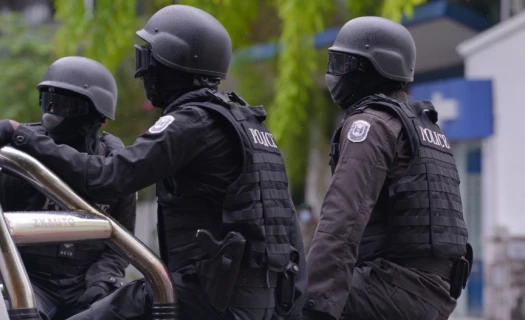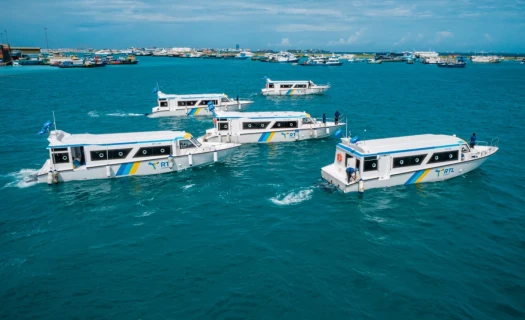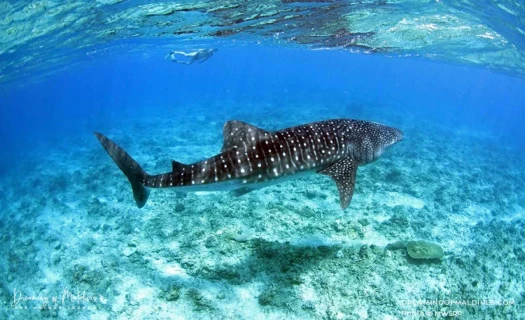Sat, 07 Feb 2026
|DHIVEHI
Honouring national heroes on Martyrs' Day
31 Jan 2025
|

Photo: President's Office
Maldives observes its annual Martyrs' Day (Shaheedhunge Dhuvas) on the first day of Sha'ban, a day dedicated to honouring the sacrifices of national heroes who defended the country's independence and Islamic faith.
This observance, which began in 1980, primarily commemorates the martyrdom of Sultan Ali VI, but has grown to encompass all Maldivian martyrs.
Sultan Ali VI gave his life defending the nation against Portuguese invaders in the 10th century Hijri. Historical records show that the Portuguese gained control of the Maldives after his death on the western shore of Malé, where his shrine now stands. His sacrifice, while pivotal, is part of a larger tapestry of resistance against Portuguese colonisation.
This resistance included figures like Ali Thakurufaanu and Kan'ba Aisha, who also fought against Portuguese rule. Their bravery, and that of others, is woven into the fabric of Martyrs' Day. The commemoration also acknowledges more recent sacrifices, such as those made during the 1988 terrorist attack, when Hussain Adam of Kulhudhuffushi and others died defending the military headquarters.
The narrative of resistance against the Portuguese is particularly poignant. Around 1550 CE, Sultan Hassan IX of the Maldives converted from Islam to Christianity and fled to Cochin, seeking Portuguese support to reclaim his throne. His departure led to Sultan Aboobakar I's ascension. Sultan Hassan IX, with Portuguese forces, launched two unsuccessful attempts to regain control. Internal conflicts within the Maldives during these incursions eventually led to Sultan Aboobakar I's downfall.
Ali Siree Adha Siyaaka Kaththiri Bavana Mahaaradhun or Sultan Ali IV, known as Ali Rasgefaanu, then ascended the throne. Just two months into his reign, after the prior Portuguese failures, a larger Portuguese force, led by Andhiri-Andhirin, who had grown up in the Maldives, returned, likely driven by Sultan Hassan IX.
The Portuguese bombarded Malé's outer harbour with cannons, to which the Maldivian defenders retaliated. This exchange lasted for several days, eventually leading to shortages of food, gunpowder, and ammunition for the Portuguese. Meanwhile, dissent and waning patriotism began to weaken the Maldivian forces. While some advocated continued resistance, others favoured surrender.
On the day of Ali Rasgefaanu's martyrdom, the Portuguese landed on Malé's northwest coast. Ali Rasgefaanu, with his sword and shield, led his army to confront them. By the time he reached Eid Miskiy in Maafannu, only his Prime Minister and two others remained; the rest had fled. Despite being vastly outnumbered, Ali Rasgefaanu and his companions bravely faced the Portuguese.
During the confrontation, the Portuguese opened fire, killing Ali Rasgefaanu's two companions. Ali Rasgefaanu himself was also killed. He and his companions were buried where they fell, the site now known as Ali Rasgefaanu Ziyaaraiy.
Ali Rasgefaanu's reign, though brief, cemented his place as a national hero. He was martyred on the first of Sha'ban, the date commemorated annually as Martyrs' Day. The day is primarily dedicated to his memory, honouring his heroism, patriotism, and devotion to Islam, along with the sacrifices of all Maldivian martyrs.
Martyrs' Day is a vital reminder of the nation's heritage and the cost of independence, especially for younger generations. It highlights the sacrifices made to achieve and maintain Maldivian sovereignty. The government stresses that this annual observance aims to instil national pride and appreciation for the country's hard-won independence, emphasising that without these historical sacrifices, the Maldives might not enjoy its current prosperity and autonomy. This sentiment is echoed in contemporary addresses on Martyrs' Day.
For example, on Martyrs' Day in 2024, President Dr Mohamed Muizzu delivered a powerful address, drawing parallels between historical foreign interference and contemporary challenges. He highlighted how internal betrayals can threaten Maldivian independence and pledged to protect Maldivian sovereignty. Furthermore, the President urged national loyalty and religious devotion, particularly addressing the youth and media, emphasising the importance of maintaining independence in modern times.
This year, the President shared a social media post to mark the day. In his message, he emphasised that we should draw inspiration from the martyrs who sacrificed themselves to safeguard the nation's independence. He stated that the Government's priority is to learn from their courage and sacrifice to build a prosperous future for tomorrow.
The day is marked by special prayers, educational programmes, and public commemorations throughout the islands. Historians and community leaders share stories of national resistance and sacrifice with young Maldivians. This commemoration underscores the Maldives' long history of defending its sovereignty, from medieval times to the modern era. It serves as both a memorial to past sacrifices and a reminder of the continuing importance of preserving national independence.








